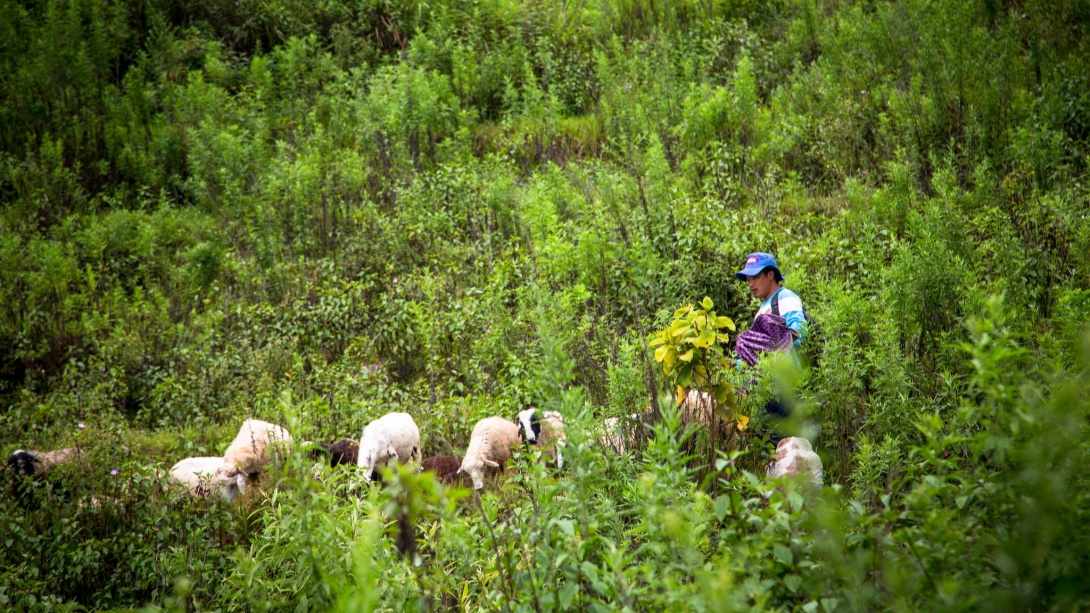
In some places in the Nepalese Himalayas, forest degradation and biodiversity loss persist because of restoration policies and carbon management practices that prioritise monocrops. This project combines ecological data and traditional knowledge to help co-develop ecologically sound and inclusive strategies for restoration while strengthening the capacities and decision-making power of local people working on restoration.
The forest degradation problem is locally specific
Despite efforts to maintain forest cover, forest degradation in Nepal persists. This is shown in the loss of biodiversity, increased increased biological invasions, and the reduction of valuable vegetation diversity in grasslands and rangelands.
We want to develop strategies that are suitable for different places, different forest types and different climate conditions. This is what we mean by ‘place-based’. Nepal is very diverse in terms of its geography, climate, forest and forest-people interaction... [but] a single policy guides restoration throughout the country. We need very local, fine-scale restoration strategies – Lila Nath Sharma, ForestAction Nepal
Current policies are not grounded in ecology and overlook traditional management and customary institutions in both forest and mountain ecosystems. Restoration initiatives are not adequately informed due to the lack of a guiding framework promoting place-based data and context-specific methods. Similarly, the current incentive structure largely promotes plantations, including fast-growing exotic trees, undermining the potential for the restoration of diverse natural forests.
More diverse forests are more beneficial forests
By shifting from a plantation-centric too general to an ecologically informed and context-specific approach, which combines expert and traditional knowledge, this project aims to improve forest health, conserve biodiversity and make forests resilient to climatic uncertainties.
Encouraging diverse and species-rich forests will create a more efficient carbon sink than monoculture and homogenous tree communities, and biologically diverse natural forests will offer better ecosystem services as they are less prone to invasion, fires and pests.
The project aims to positively influence and inform the future restoration of over 10,000 hectares of forest and grassland in the Central Nepalese Himalayas.
Plus, current restoration measures are largely timber-centric with benefits that are skewed towards a small group of influential people including community elites. This project will prioritise enhancing the capacities of restoration champions who will primarily work in the interest of Indigenous Peoples and local communities through assessing the resource needs of these groups.
Over 1,000 people representing diverse stakeholders such as forest user groups, government officials, restoration practitioners and Indigenous People will benefit from capacity building initiatives, while helping to conserve Indigenous traditional ecological knowledge and practices.
Connect